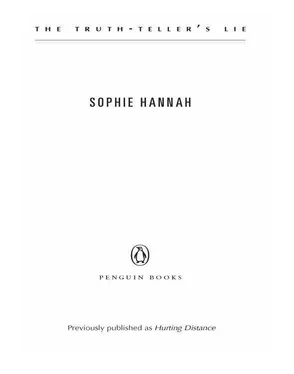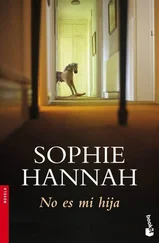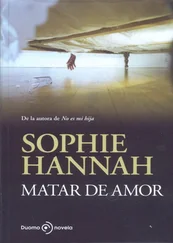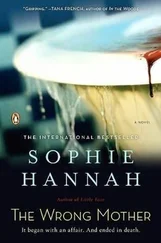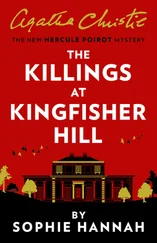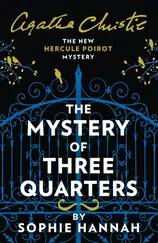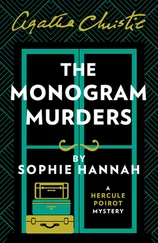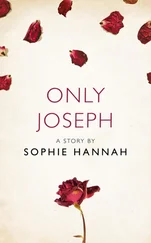Mr Haworth came back on to the stage and untied me. He told me to walk down the steps and reminded me that if I disobeyed him in any way, he would ‘gut’ me. I did what he said. He led me to the table, where there was one chair still unoccupied. He pushed me down on to it and began to tie me up again. He pulled my arms behind my back and behind the back of the chair and tied my wrists together. Then he pushed my legs as far apart as they would go and told me to put my ankles together underneath the chair. He then tied my ankles. The other men continued to clap and cheer.
Mr Haworth then served three more courses to the men, one that was a slab of some sort of meat with some vegetables, a tiramisu and then cheeses. None of the other men apart from Mr Haworth touched me at all, but while they were eating, they mocked and taunted me. From time to time, one of them asked me a question—for example, I was asked what my favourite sexual fantasy was, and my favourite sexual position. Mr Haworth ordered me to answer. ‘And you’d better make it good,’ he said. I said the sorts of things I thought he wanted me to say.
After the men had finished their last course, Mr Haworth cleared away all the things from the table. He brought a bottle of port and some glasses from the kitchen, then a box of cigars, then some ashtrays and matches. Then he untied me and told me to lie face down on the table. I did so. Some of the men lit cigars. Mr Haworth climbed on top of me and raped me anally.
When he’d finished, he said, ‘Does anyone want a go?’
One of the men replied, ‘We’re all too pissed, mate.’
A few of the men, including Mr Haworth, then tried to encourage a man named Paul to rape me. They said things like, ‘What about you, Paul?’ and, ‘Go on, Paul, you’ve got to do her.’ This made me think that the men all knew each other quite well, that they were an established group of friends and perhaps Paul was the leader, or known as some sort of character within the group. I couldn’t see which of the men was Paul, but I heard him say, ‘No, watching’s enough for me.’
Mr Haworth told me to stand up. He handed me my coat and my shoes and told me to put them on. Once I was dressed, he put the mask over my eyes again and made me walk outside with him, leaving the men inside the room. He pushed me into the car and slammed the door. Mr Haworth didn’t speak to me at all during this second car journey. I think I must have fainted or blacked out for much of the journey, because I lost all track of time. Some time later, while it was still pitch dark, the car stopped and I was pulled out. I fell down to the ground. Mr Haworth did not give me back my mobile phone. I heard the car drive away and assumed he had gone. After a few seconds I plucked up the courage to pull off the mask and I saw that I was just down the road from my own car, on Thornton Road in Hamblesford. My car keys were in my coat pocket, so I got into my car and drove home.
I told no one about what happened to me and did not report my abduction and attack to the police. I later encountered Mr Haworth again by chance, on 24 March 2005 at Rawndesley East Services, and was able to identify him by following him to his lorry in the car park, which had his name painted on it.
Statement taken by: DC 124 Simon Waterhouse, Culver Valley CID
Station: Spilling
Time and place statement taken: 1610, 4.4.06 Spilling
7
4/5/06
‘A ROZZER?’ THE man who was showing Charlie and Olivia around their holiday chalet threw up his hands in alarm. ‘I wouldn’t have told you we had availability if I’d known you were one of the boys in blue. Girls in blue, rather.’ He winked and turned to Olivia. ‘You a rozzer as well?’ He had the sort of polished accent Charlie thought of as ‘public school’.
‘No,’ said Olivia. ‘Why does everybody who meets us together always say that?’ she asked Charlie. ‘No one asks you if you’re a journalist. It makes no sense. Is it meant to run in the family, the desire to enforce the law?’ Anyone who knew Olivia would have known how ludicrous it was, the idea of her chasing a teenage thug down the street or breaking down the door of a crack house. ‘Does your brother own a holiday-chalet business?’ she enquired innocently.
The man wasn’t offended, thank goodness. He laughed. ‘This might come as a surprise, but, yes, my brother and I have been in business together for several years. So, you’re a journalist, are you? Like whatsername? Kate Adie!’
Charlie wouldn’t have put up with the man’s prying if he had been any less handsome or if she had been any less thrilled with the chalet. She could tell Olivia loved it too. There was a bath big enough for two people, which stood on four gold feet in the centre of a large bathroom with a black slate floor. A straw basket beside the basin overflowed with Molton Brown products and the large, flat, gleaming shower-head in the glass stall in the corner looked capable of unleashing a satisfying downpour.
Both beds in the chalet were wider than ordinary doubles. The frames were sleigh-shaped, cherry wood, with curved head- and footboards. Their friendly if slightly intrusive host—Mr Angilley, Charlie assumed, the one whose name was on the card—had given them a pillow menu when they’d first arrived. ‘Duck down,’ Olivia had said without a moment’s hesitation. Charlie had thought, I wouldn’t mind sharing my pillows with you, Mr Angilley, but she’d kept the thought to herself. He was the sort of good-looking that was unusual, verging on implausible—as if he’d been designed by a great artist or something. Almost too perfect.
A huge, flat-screened television was set into the wall in the living area, and although there wasn’t a minibar, there was something called a ‘larder’ by the entrance to the kitchen that was stocked with every conceivable variety of alcohol and snack. ‘Just tell us what you’ve had at the end of the week—we trust you!’ Angilley had said, winking at Charlie. She didn’t normally like to be winked at, but perhaps it wasn’t sensible to be so rigid about things . . .
The kitchen was tiny, which Charlie knew had pleased her sister. Olivia was opposed to the big, sociable, island- and table-stuffed kitchens that most women loved. She thought cooking was a waste of time and that nobody who didn’t have to do it professionally should do it at all.
‘Not at all like Kate Adie,’ she told Angilley. ‘I’m an arts journalist.’
‘Very sensible,’ he said. ‘Much better to get stuck at the Tate Modern than in downtown Baghdad.’
‘It’s a moot point,’ Olivia muttered.
Charlie examined Angilley’s big brown eyes, which had laughter lines round them. How old was he? Early forties, she guessed. His centre-parted floppy hair gave him an agreeably unkempt look. Charlie liked the greeny-grey tweed jacket he was wearing, and his scarf. He was stylish, in a country sort of way. And he wasn’t wearing a wedding ring.
Much more attractive than Simon bloody Waterhouse.
‘What’s your name?’ Charlie decided to do a bit of counter-prying.
‘Oh, sorry. I’m Graham Angilley, the owner.’
‘Graham?’ She looked at Olivia and grinned. Her sister glared at her. ‘What a coincidence.’ Charlie moved automatically into flirtatious mode. She tilted her head and gave Angilley a mischievous look. ‘My made-up boyfriend’s called Graham.’
He seemed disproportionately pleased. Pink spots appeared on his cheeks. ‘Made-up? Why would you want to make up a boyfriend? I’d have thought you’d have plenty of real ones.’ He bit his lip and frowned. ‘I don’t mean plenty, I mean . . . well, you must have lots of admirers.’
Charlie laughed at his embarrassment. ‘It’s a long story,’ she said.
Читать дальше
